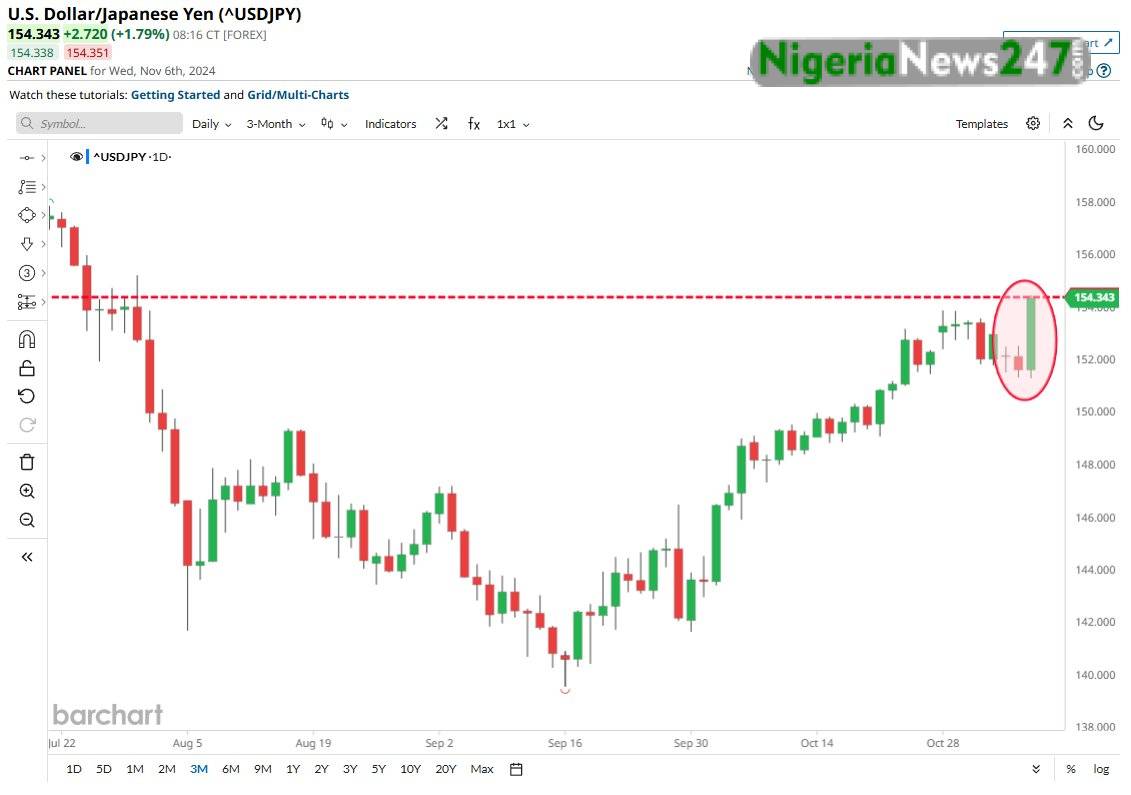ECONOMY
Japanese Yen Hits 3-Month Low Against the U.S. Dollar

The Japanese yen has recently plunged to its weakest level against the U.S. dollar in more than three months, raising concerns among economists and financial markets. The yen’s depreciation comes amid a broader trend of diverging monetary policies between the Bank of Japan (BoJ) and the U.S. Federal Reserve, with the latter maintaining higher interest rates to curb inflation.
As a result, the gap between U.S. and Japanese interest rates has widened, making the U.S. dollar more attractive to investors, while the yen has lost some of its appeal. The yen’s fall to these levels is indicative of both global economic dynamics and domestic challenges in Japan’s economic landscape.
The primary driver behind the yen’s recent decline is the continued monetary policy stance of the Bank of Japan, which has kept interest rates near zero in an effort to stimulate economic growth and combat deflationary pressures.
In contrast, the U.S. Federal Reserve has been raising interest rates over the past year to address persistently high inflation. These opposing policies have led to a stronger dollar, as higher U.S. rates draw in capital flows, while Japan’s low-interest rate environment makes the yen less attractive to foreign investors.
The widening yield differential between U.S. Treasury bonds and Japanese government bonds has only exacerbated this trend, pushing the yen lower against the dollar.
Another factor contributing to the yen’s weakness is Japan’s ongoing struggle with slow economic growth and low inflation. The country has faced structural issues such as a shrinking population, declining productivity growth, and a heavy reliance on exports to drive economic output.
With global demand for Japanese goods facing headwinds, coupled with the impact of higher energy prices and supply chain disruptions, Japan’s economic recovery has been sluggish. These factors have undermined investor confidence in the yen, leading many to move their assets into safer, higher-yielding currencies like the U.S. dollar.
While a weaker yen can provide some short-term benefits for Japan, such as boosting exports by making Japanese goods more competitively priced abroad, it also has potential downsides. A weaker yen can increase the cost of imported goods, particularly energy and raw materials, which could contribute to inflationary pressures in Japan.
Additionally, a volatile currency can create uncertainty in global markets, especially for Japanese businesses with international operations or foreign debt obligations. As a result, Japan’s policymakers are under pressure to find a balance between supporting economic growth and managing currency volatility, particularly as the yen’s depreciation raises concerns about Japan’s long-term economic stability.











You must be logged in to post a comment Login